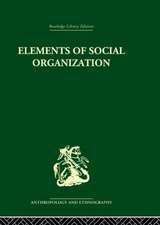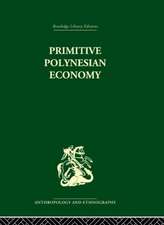Marxism, Class Analysis and Socialist Pluralism: A Theoretical and Political Critique of Marxist Conceptions of Politics: Routledge Library Editions: Marxism
Autor Les Johnstonen Limba Engleză Hardback – 8 apr 2015
Din seria Routledge Library Editions: Marxism
- 17%
 Preț: 259.98 lei
Preț: 259.98 lei - 16%
 Preț: 241.15 lei
Preț: 241.15 lei - 17%
 Preț: 259.98 lei
Preț: 259.98 lei - 15%
 Preț: 702.25 lei
Preț: 702.25 lei - 18%
 Preț: 1002.63 lei
Preț: 1002.63 lei - 16%
 Preț: 241.15 lei
Preț: 241.15 lei - 15%
 Preț: 672.12 lei
Preț: 672.12 lei - 18%
 Preț: 1004.20 lei
Preț: 1004.20 lei - 43%
 Preț: 172.64 lei
Preț: 172.64 lei - 18%
 Preț: 1005.01 lei
Preț: 1005.01 lei - 18%
 Preț: 1001.07 lei
Preț: 1001.07 lei - 17%
 Preț: 256.32 lei
Preț: 256.32 lei - 16%
 Preț: 241.15 lei
Preț: 241.15 lei - 17%
 Preț: 178.76 lei
Preț: 178.76 lei - 16%
 Preț: 243.90 lei
Preț: 243.90 lei - 18%
 Preț: 1001.07 lei
Preț: 1001.07 lei - 17%
 Preț: 247.40 lei
Preț: 247.40 lei - 18%
 Preț: 1061.06 lei
Preț: 1061.06 lei - 18%
 Preț: 1281.24 lei
Preț: 1281.24 lei - 18%
 Preț: 1287.09 lei
Preț: 1287.09 lei - 16%
 Preț: 241.15 lei
Preț: 241.15 lei - 34%
 Preț: 7528.09 lei
Preț: 7528.09 lei
Preț: 680.31 lei
Preț vechi: 1027.16 lei
-34% Nou
Puncte Express: 1020
Preț estimativ în valută:
130.18€ • 136.26$ • 108.35£
130.18€ • 136.26$ • 108.35£
Carte tipărită la comandă
Livrare economică 31 martie-14 aprilie
Preluare comenzi: 021 569.72.76
Specificații
ISBN-13: 9781138886254
ISBN-10: 1138886254
Pagini: 168
Dimensiuni: 156 x 234 mm
Greutate: 0.43 kg
Ediția:1
Editura: Taylor & Francis
Colecția Routledge
Seria Routledge Library Editions: Marxism
Locul publicării:Oxford, United Kingdom
ISBN-10: 1138886254
Pagini: 168
Dimensiuni: 156 x 234 mm
Greutate: 0.43 kg
Ediția:1
Editura: Taylor & Francis
Colecția Routledge
Seria Routledge Library Editions: Marxism
Locul publicării:Oxford, United Kingdom
Public țintă
Postgraduate and UndergraduateCuprins
1. Introduction: Marxism and the Materialist Conception of Politics Part 1. Marxism, Managerialism and Capitalist Possession 2. Marxism and the Problem of Managers 3. Marxism, Managerialism and Corporate Capitalism Part 2. Marxism, Politics and the State 4. Classical Marxism and the State 5. Contemporary Debates on the Capitalist State Part 3. Class Analysis and Socialist Political Calculation 6. Marxism and the Problem of the Working Class 7. Class and Political Ideology: A Non-Reductionist Solution? Part 4. Theoretical and Political Conclusions 8. Socialist Theory and Socialist Pluralism
Descriere
This book, first published in 1986, presents a radical challenge to socialist orthodoxy, subjecting a key component of that orthodoxy – Marxism – to sustained criticism. Les Johnston argues that Marxism cannot provide the foundations for a rigorous socialist theory or an effective socialist politics. A fundamental element of this criticism is the suggestion that the problem of ‘reductionism’ which has preoccupied Marxists is a red herring. Marxism’s problem is not its reductionism but its theoretical incoherence. Marxism is not ‘deterministic’, for there is invariably an indeterminate relationship between the materialism it invokes and the forms of politics it adopts. However, materialism is an obstacle to socialist theory. The contradictions and failures of Marxist class analysis suggest that the class concept is inadequate to the demands that socialists continue to place on it. It is not merely class which is problematic, however, but the conception of political interests which is associated with it. Even recent Marxist ‘revisionists’ who dispense with class primacy are unwilling to come to terms with the question of how socialist political interests are constituted. Socialist theory has to recognise the varied forces and interests on ‘the left’, and an effective socialism will have to be a pluralistic one. This means there can be no general theory of socialism, since a pluralistic socialism has to be able to adjust to varying social conditions.






















